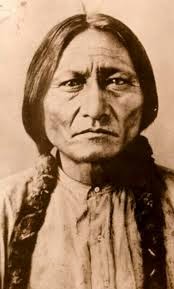We need a new $20 bill
While researching my
novels, I learn quite a bit about historical figures, and that has
changed my perspective on many of them. One of them in particular has
been weighing heavily on my mind lately, and that is Andrew Jackson,
sometimes called 'Old Hickory' but most often referred to by my
contemporaries as 'The guy on the twenty dollar bill'.
Being a frequent visitor to
social media sites, I watch with amusement (and sometimes boredom)
while my Democrat friends vilify George W. Bush, and my Republican
friends do the same to Barrack Obama. Neither of these men, as
controversial as their presidencies sometimes are, comes anywhere
near committing the moral outrages of Andrew Jackson.
I am not talking about his
habit of dismissing all of the government officials who opposed his
campaign and replacing them with his supporters. Every president
since Jackson has done the same thing. I am also not talking about
the personal scandals that one of his cabinet members (John Eaton)
became involved in. Bill Clinton's infidelity blew poor Eaton out of
the water.
I am talking about a
particular bill, which was a platform of the Jackson campaign, and
was passed into law on May 28, 1830. That law was known as the
'Indian Removal Act' and represents one of the most shameful periods
in our nation's history.
For those of you who are
not familiar with the act, it nullified treaties with what were then
known as 'The Five Civilized Tribes' and made it a law that those
people be forcibly removed to what is now Oklahoma. 'The Five
Civilized tribes were, the Cherokee, Chickasaw, Choctaw, Creek and
Seminole peoples living in what we now consider the southeastern
United States.
The people of these first
nations were not referred to as 'civilized' for no reason. They were
farmers, stock raisers, traders and artisans who lived a relatively
peaceful existence with the whites for generations. I say 'relatively
peaceful' as opposed to the nomadic tribes of the far west who seem
to have maintained raiding as one of the pillars of their economy.
The Americans in those southern states did not call for the native's
removal to protect their settlements or their lives, but mainly
because gold had been discovered in Georgia. 'Old Hickory' answered
that call.
After the enactment of the
Indian Removal act, many terrible atrocities were committed (by both
sides) in the conflict between the First Nations and the Americans of
European and African descent. I don't mean to say in any way that the
act was the ultimate 'low point' in relations between the two groups.
It does however, signify the start of years of institutionalized
oppression by the U.S. government.
In my job as a cashier, I
am struck by the irony that if a customer hands me a picture of
Andrew Jackson, I will give him a T-shirt featuring a representation of Osceola (I live near Florida State University). Most people that I have spoken with do not think about (or often even know) who Andrew Jackson was, and what he represented. So perhaps we should keep 'Old Hickory' on the twenty, lest we forget, and risk repeating a deplorable chapter in the history of our great nation.
Andrew Jackson, I will give him a T-shirt featuring a representation of Osceola (I live near Florida State University). Most people that I have spoken with do not think about (or often even know) who Andrew Jackson was, and what he represented. So perhaps we should keep 'Old Hickory' on the twenty, lest we forget, and risk repeating a deplorable chapter in the history of our great nation.
ad
10/20/2014
p.s. My vote for the new model would probably be Cochise, but since I know of no extant picture of him, here is Sitting Bull for your enjoyment.











